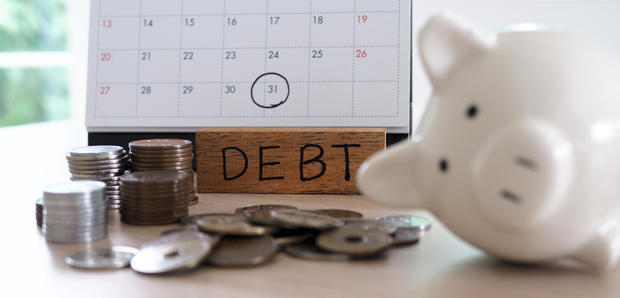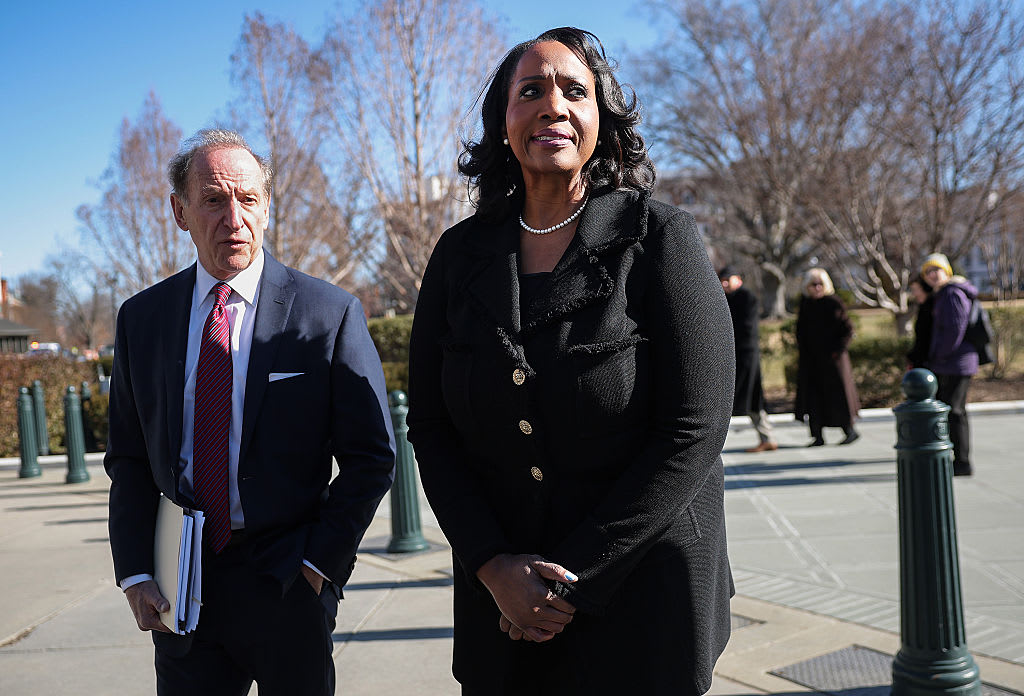Should I save money or pay off debt first?
Saving money and paying off debt are two important financial goals that can lay the foundation for a secure future. But one common dilemma many people face is deciding which to prioritize, especially when they have multiple financial goals they want to achieve.
It can be challenging to know where to focus your efforts, especially when savings and debt repayment seem equally urgent. Fortunately, there are some things you can consider to help you create your plan of attack.
See today's top savings rates here.
Should I save money or pay off debt first?
You can take a few approaches when it comes to reaching your savings goals and ridding yourself of debt.
Option 1: Pay off debt first
Debt can be a huge drain on your budget, not to mention a significant source of stress. If you have high-interest debt, such as credit card balances, it can be a smart idea to focus on paying off that debt before starting to save.
By doing this, you'll avoid paying hundreds (or even thousands) of dollars in interest, freeing up your money for other goals, such as saving for retirement. You'll also boost your credit score, which can help you in many areas of your financial life.
"If you have credit card debt that is increasing and you're paying high interest, you definitely want to pay that off first," says Stuart Boxenbaum, CFP and president of Statewide Financial Group. "The same is true if you are behind on your mortgage, car payment or a similar debt. When there is high interest involved, paying this off or getting to a minimum is more important now than saving money. If you get your debt situation under control or to a minimum, then saving money is the next move."
However, paying off debt before you start saving could delay reaching other financial goals, especially if you have multiple debts or low income. For example, if you prioritize debt repayment, you may have to sacrifice creating an emergency fund, which can help you avoid going into more debt.
Check out current savings options online now.
Option 2: Start saving first
Focusing on saving money first can boost your financial security. Building an emergency fund, for instance, can help you weather unexpected expenses without resorting to credit cards or loans.
It can also give you peace of mind and reduce the stress of living paycheck to paycheck. Plus, having savings can help you pursue other long-term financial goals, such as investing, buying a home or planning for retirement.
The sooner you start saving, the more time your money has to grow through compound interest. And by keeping your savings in a high-yield savings account or certificate of deposit (CD), that interest will grow even faster.
"For example, instead of having your emergency fund sitting idle and earning next to nothing, a high-yield savings account can help you earn a real return on your money while still keeping it readily available for unexpected expenses," says Kristen Beckstead, CFP, ChFC, vice president and financial planner at First Horizon Advisors.
However, saving money instead of paying down debt could keep you in debt longer. If you make only the minimum payments, it can take years or even decades to pay off your balances, and you'll pay much in total due to interest and fees.
Moreover, if you have high-interest debt, the interest charged on your debt will likely be higher than the interest you earn on your savings, making it more beneficial to pay off debt first.
Find your new savings account or CD here!
Option 3: A hybrid approach
If you're unsure whether saving or paying off debt should be your priority, a hybrid approach may be your best option. With this approach, you create put a portion of your income toward both debt repayment and savings each month.
One popular hybrid approach is the 50/30/20 rule: 50% of your income goes toward essential bills, 30% goes toward discretionary spending and 20% goes toward savings and debt repayment. But the best allocation depends on your financial circumstances.
With a hybrid approach, you can make progress on both fronts without sacrificing one entirely. However, this approach may require more discipline and planning than just focusing on one option. You may have to cut down on expenses or find ways to increase your income to have enough money to put toward both goals. That said, it can be a balanced and sustainable way to manage your finances in the long run.
The bottom line
So, should you save or pay off debt first? Ultimately, the decision comes down to your financial goals, priorities and circumstances. Each option has its advantages and disadvantages, and the best approach will vary from person to person.
In general, if you have high-interest debt, paying that off should be a priority. If you need to build your emergency fund or have a short-term savings goal, like saving up a down payment for a house, then saving should be your priority.
That said, the best approach may be to allocate a portion of your income to both savings and debt repayment. This way, you make progress toward both goals without neglecting one or the other. To find your ideal approach, consult a financial advisor who can review your existing debt and savings goals and create a custom plan for you.




